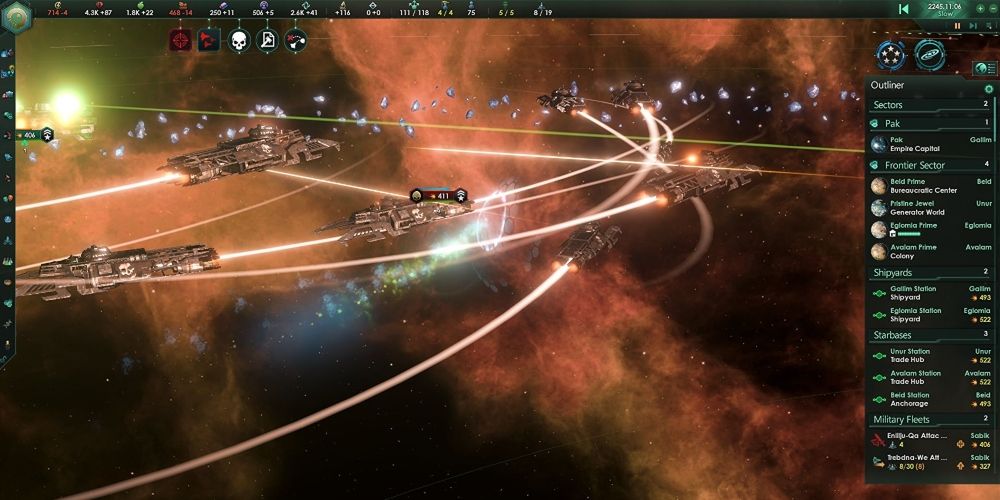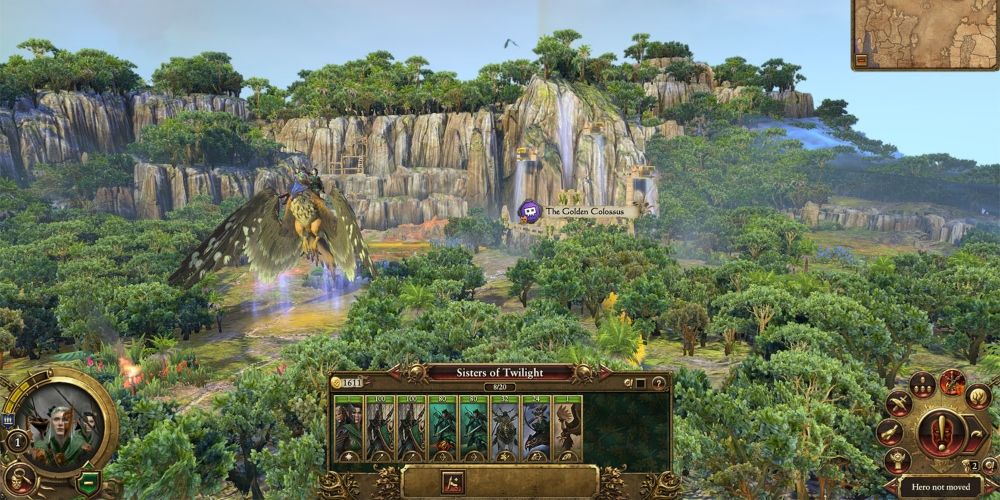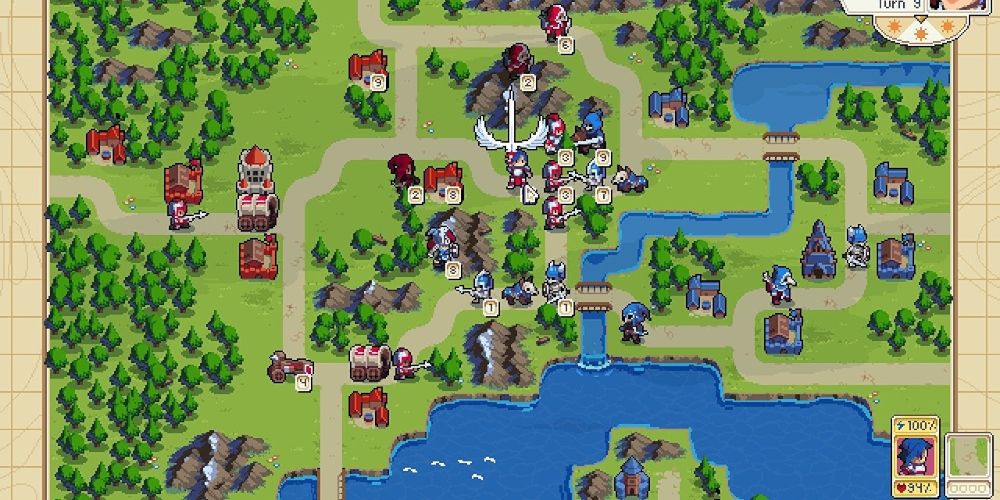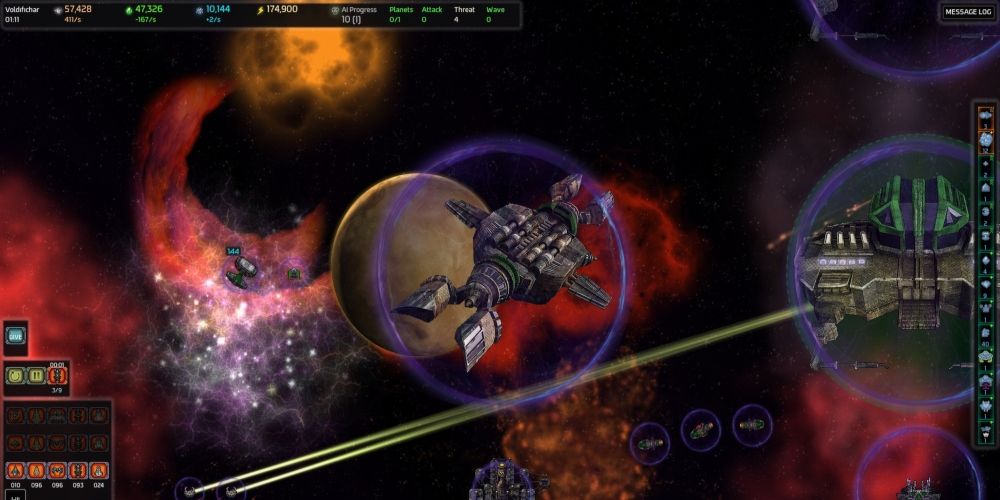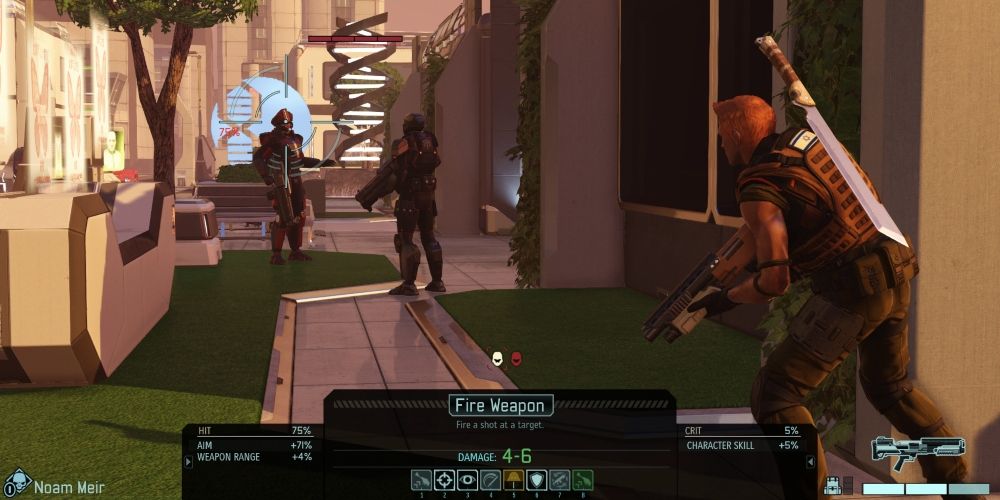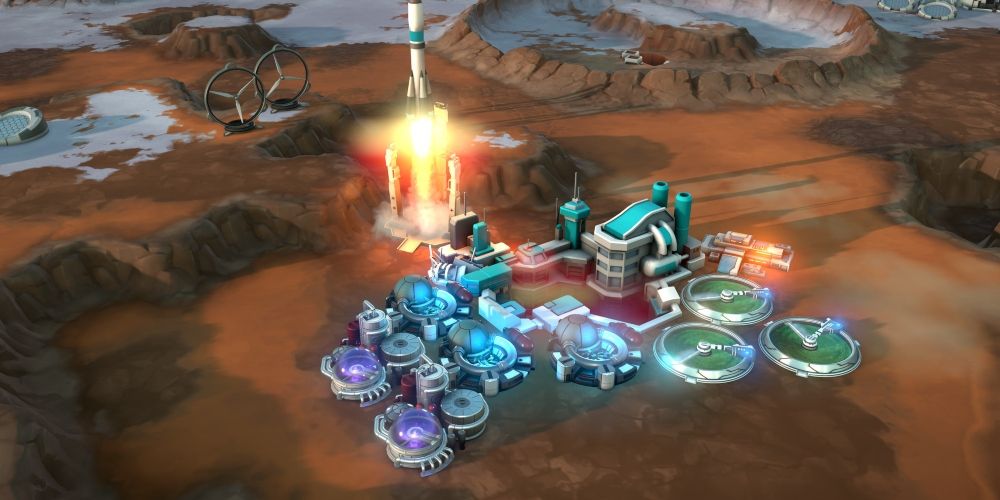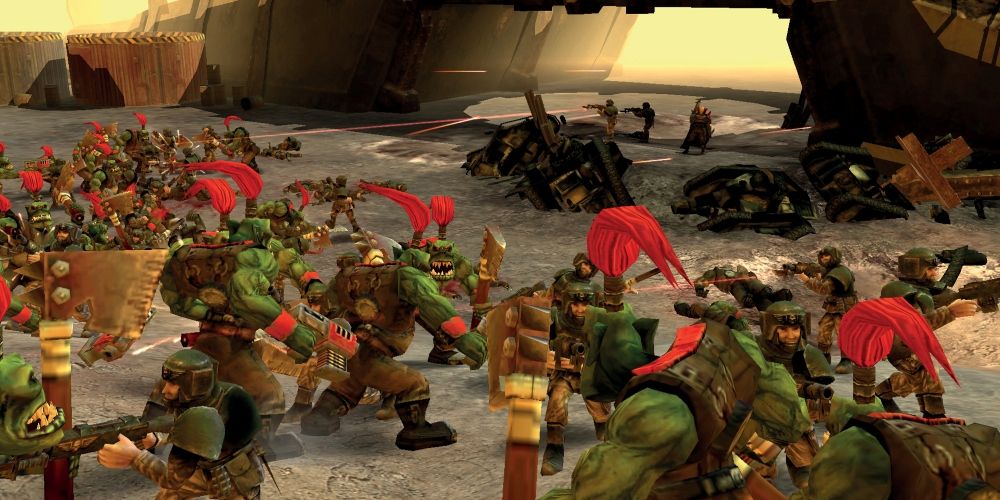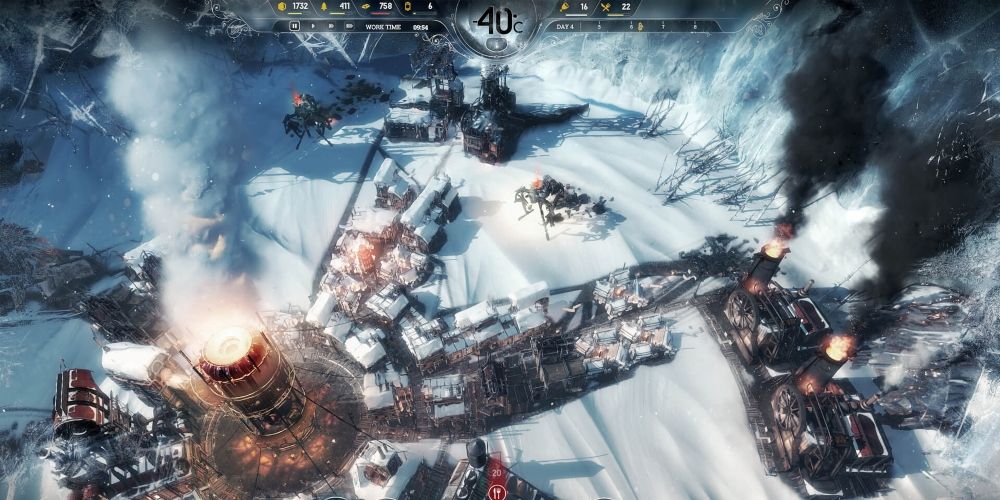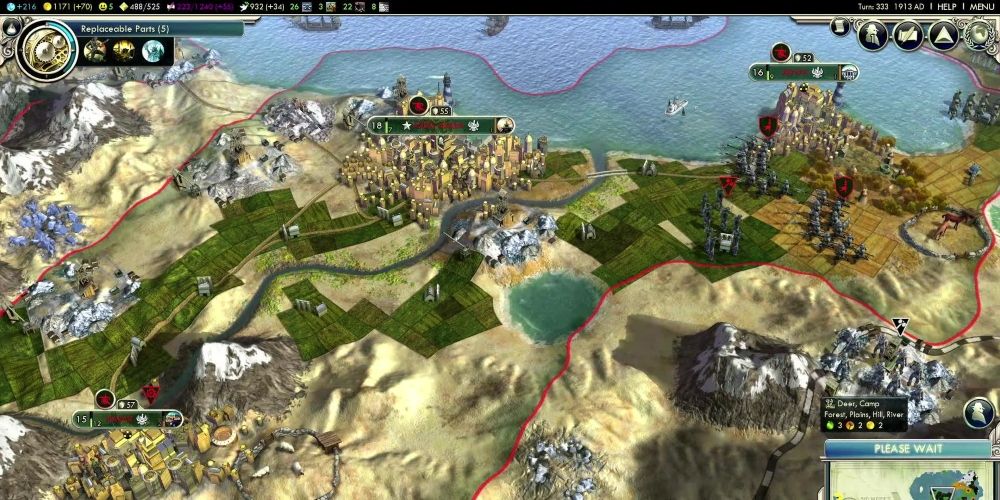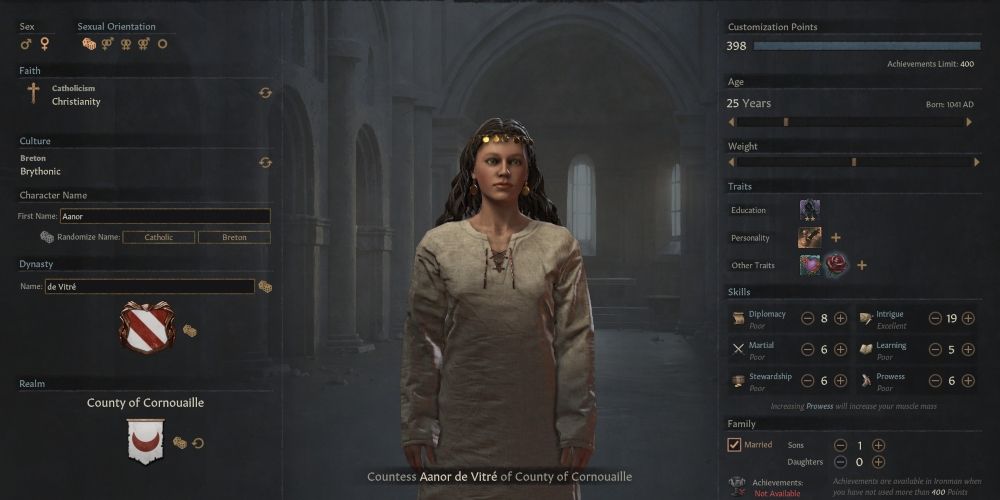The various genres that fall under the umbrella of Strategy Games all have a reputation for being dense and complicated, with high skill floors and much higher skill ceilings. It is undeniable that a great many Real-Time Strategy, 4X, Turn-Based Strategy, or City Management games live up to this reputation, with layers upon layers of interlocking mechanics.
However, some are more approachable than others and well worth the effort to learn. With potentially thousands of hours of gaming available to a player, there are games that, as daunting as they may seem, are rewarding if the player should choose to invest their time and patience into them.
10 Stellaris Is Every Space Opera Story In One Game
A lot of strategy games turn to the past or to mythology, but plenty more look to the future, and few do it better than Paradox Interactive's Stellaris. In the game, the player creates an empire with almost endless combinations, and guides them from their first faster-than-light ships to becoming a dominant power in the galaxy.
With an event-driven story that is never the same twice, the game has almost endless replayability if the player can get to grips with its complex economic management, and deceptively in-depth warfare. Once they have mastered the basics, players can tell almost any sci-fi story; from humans reaching out into the stars, robots attempting to co-exist with organic species, or a wicked menace lurking in the depth of space.
9 Total War: Warhammer II Is A Fantasy Epic
The Warhammer universe is a fantasy wargaming classic, and there are few strategy game series more acclaimed than the Total War franchise. As such, the marriage of the two is an intensely-beloved combination, and its sequel is considered even better than the first game. Letting the player control one of Warhammer's iconic fantasy species in a struggle for dominance, many consider it one of the best fantasy wargames.
The player can take the smaller, more local 'Eye of the Vortex' campaign, or, with the first game, combine the two maps in the world-spanning 'Mortal Empires,' a true sandbox war simulator. The second game is considered more creative and ambitious than the first, and better-balanced and designed than Total War: Warhammer III, hitting the sweet spot for many in the community.
8 Wargroove Takes From The Best Of Turn-Based Strategy
Two of the best-known series in the Turn-Based Strategy genre are Advance Wars and Fire Emblem, both made by Intelligent Systems. As beloved as those games are, one acclaimed game in recent years has drawn from their best. Wargroove is a game in the same genre set in a medieval fantasy world.
Playing very similar to an Advance Wars game while also revolving around powerful hero units like Fire Emblem, the game draws from high pedigree, with quality-of-life tweaks, and is stronger for it. A light-hearted aesthetic and story involving a heroic member of dog royalty earn the game extra points.
7 AI War: Fleet Command Subverts The Genre
Every strategy game has its own mechanics and conventions, but the general idea of many is that the player acquires as many resources and soldiers as possible, and then wages war in as epic a way as they can. In AI War: Fleet Command, this is a certain path to defeat. In the game, the player controls a small human resistance against an AI that has taken over the galaxy and has infinitely more resources than them.
As such, if the player simply expands as much as they like and destroys all opposition, the AI will simply divert more and more forces to crush them, ending the game prematurely. AI War: Fleet Command instead encourages the player to make surgical strikes, making do with as little as possible. It is a true test of skill with a steep learning curve, but celebrated by many.
6 XCOM 2 Merges Real-Time And Turn-Based Strategy
The second game in the rebooted XCOM franchise, XCOM 2 follows on from the worst possible endings to the first game, casting the player as the head of a guerilla movement against the alien ADVENT who have taken over the Earth and transformed it into a deeply sinister utopia.
The game uses turn-based tactical combat with a heavy emphasis on positional control and ambushes, while the strategic elements take place in real-time as the player attempts to research technology, plots operations, and trains soldiers to take Earth back. The gameplay is praised as challenging but addictive, and the game is an excellent strategic struggle.
5 Offworld Trading Company Takes Away The Military Aspects
The strategy genre is widely-associated with wargaming. Most games, even those with a more general focus, have warfare as a heavy component. In many strategy games, players raise armies, send them against their foes and do battle, even whilst doing other things. In Offworld Trading Company, this is done away with.
Instead, the game casts the player as the ruthless head of an amoral business, based on Mars. The fighting is over influence and money, with companies looking to undercut each other's profits and buy each other out. No less tense for its lack of violence, Offworld Trading Company is considered a breath of fresh air for the genre, and one of the most fun strategy games to play with friends.
4 Dawn Of War Is Dated But Still Rewarding
Warhammer 40,000, the sci-fi sister franchise to Warhammer, has a long history of video games, and the one considered by many to still be the best is Dawn of War, a real-time strategy series. The game has a history, being made in 2004 and lacking some later developments in the genre, but is still considered an incredibly solid strategy game.
With many factions to choose from, several story-based and map-based campaigns, and surprisingly deep base-building and combat, the game has a lot to recommend it, and has an ongoing multiplayer scene years later. It has had two sequels, but neither Dawn of War II or Dawn of War III are considered to be as good as the original.
3 Frostpunk Is Harsh City Survival
Not all strategy games are about vast nations or empires, some focus on a single city. In Frostpunk, the player controls a small group of survivors amid a volcanic winter in Victorian times, striving to keep their townspeople alive at all costs. Building a city and then maintaining it in the face of adversity, the game has a distant focus from many strategy games.
It's designed to force the player to make difficult and unpleasant choices, with catastrophe around every corner. They have to balance necessity and resources with politics and discontent. A somewhat unique strategy game experience, it is a deep and rewarding game for players to learn.
2 Civilization Is Strategy Game Royalty
Of all strategy games, there are few as well-known as the Civilization series. A long-running series with six mainline installments, the series lets players choose a historical society to play, taking control of them from their very first meager city, and competing against the other powers in the world.
Going from the Ancient Era to humanity's future, the games are all about development, with war, religion, and science all being paths to furthering the player's society at all costs. Each game in the series has its die-hard fans, and the series as a whole is notorious for being deceptively complex and unbelievably addictive.
1 Crusader Kings III Is Strategy Made Personal
Many strategy games are all about the big picture. The player controls nations, moves armies of thousands, and enacts sweeping policies that affect thousands, all without many individual faces in the mix. Crusader Kings III emphasizes the individual at the heart of these strategies. While the player rules their land and goes to war, much of their focus is on other people.
The game is about the personal intricacies of rule. Players have to keep their individual rulers alive and healthy, manage their marriages and familial relationships, and engage in diplomacy heavily colored by something as simple as personal dislike between two rulers. With its different scale, it is considered by many a worthy experience.


